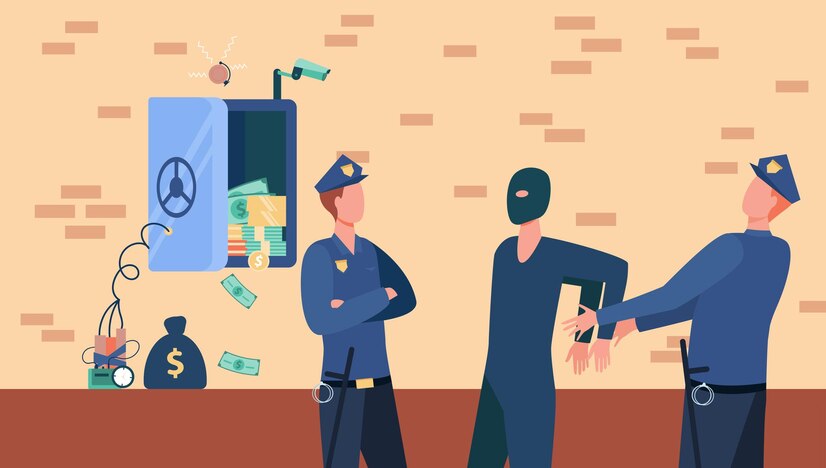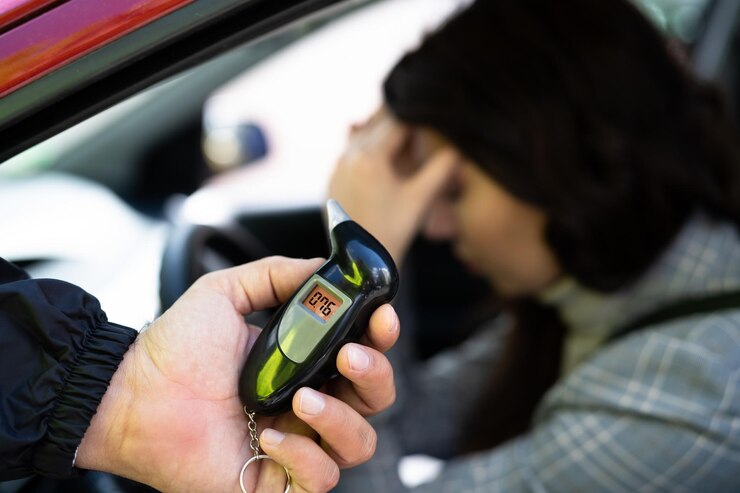If you’re facing a DWI (Driving While Intoxicated) charge in Texas, you might be feeling overwhelmed. It’s a serious offense with potentially life-altering consequences. DWI in Texas can lead to fines, license suspensions, and even jail time, depending on the circumstances. Understanding your rights, responsibilities, and the steps you should take after a DWI charge can help you navigate this challenging situation.
This article will guide you through what DWI in Texas entails, what to do immediately after being arrested, and how to approach your case in a way that minimizes the impact on your life. Whether it’s your first offense or a repeat charge, it’s crucial to understand the process and take action as soon as possible.
What is DWI in Texas?
DWI in Texas refers to the criminal offense of driving while intoxicated. Texas law defines intoxication as having a blood alcohol concentration (BAC) of 0.08% or higher. However, DWI in Texas isn’t limited to alcohol. It also applies to impairment caused by drugs, whether prescription, over-the-counter, or illegal substances. If a police officer believes you’re impaired to the point where you’re unable to safely operate a vehicle, they can arrest you for DWI regardless of your BAC or the type of substance involved.
DWI in Texas is a serious criminal charge, and even a first offense can lead to consequences that affect your driving privileges, criminal record, and finances. That’s why understanding what happens after a DWI in Texas charge is essential to ensuring that you take the right steps moving forward.
Immediate Steps to Take After a DWI Arrest
Getting arrested for DWI in Texas is a life-changing event. Here’s what you need to do immediately to protect your rights:

1. Stay Calm and Comply with the Officer’s Requests
If you are pulled over and suspected of DWI in Texas, it’s important to remain calm and respectful toward the officer. While it’s natural to be anxious or frustrated, remember that how you handle the situation can influence the outcome. Texas law enforcement officers have the right to ask you to perform field sobriety tests and take a breath or blood test to determine your BAC.
You have the right to refuse a breathalyzer test or field sobriety tests, but doing so will likely result in an automatic suspension of your driver’s license. However, refusing a test could also be used as evidence in your case, potentially leading to harsher penalties if you are convicted. The decision to refuse or comply should be made with the advice of a legal professional, but it’s often in your best interest to cooperate with the officer’s lawful requests.
2. Request an Immediate Hearing for Your Driver’s License
When you are arrested for DWI in Texas, your driver’s license will typically be suspended on the spot unless you take action. You have only 15 days from the date of your arrest to request an administrative hearing with the Texas Department of Public Safety (DPS) to contest the suspension of your license. This hearing is separate from the criminal DWI case and provides an opportunity to challenge the suspension before it takes effect.
Failing to request the hearing within 15 days will result in an automatic license suspension. The hearing will assess whether the arrest was legally justified and if the evidence (such as BAC testing) was properly handled.
3. Hire an Experienced DWI Lawyer
One of the most critical steps you can take after a DWI in Texas arrest is to hire an experienced attorney. DWI cases can be complex, and the consequences of a conviction can be severe. A qualified attorney will understand the Texas legal system and know how to challenge the evidence, negotiate on your behalf, and provide you with the best chance of a favorable outcome.
Your attorney will guide you through the entire process, from defending against the administrative license suspension to representing you in court. Without legal representation, you may find it difficult to navigate the complexities of the DWI process and protect your rights effectively.
The Penalties for DWI in Texas
The penalties for DWI in Texas depend on various factors, including whether it is your first offense and whether any aggravating circumstances, such as having a child passenger or causing an accident, are involved. Here’s an overview of the potential consequences:
1. First Offense
For a first-time DWI in Texas, the penalties can include:
- Fines: Up to $2,000
- Jail time: Up to 180 days in jail (though you may be eligible for probation)
- License suspension: Up to one year
- Community service: Between 24 and 100 hours
- Alcohol education classes: Required for all first-time offenders
Although a first offense typically results in lighter penalties, you may still face significant consequences, including a criminal record and a suspended driver’s license.
2. Second Offense
A second DWI in Texas conviction is more serious. Penalties may include:
- Fines: Up to $4,000
- Jail time: Between 30 days and one year
- License suspension: Up to two years
- Community service: Up to 200 hours
- Mandatory alcohol education program
Repeat offenders face steeper fines, longer license suspensions, and increased jail time. Additionally, second offenses are often viewed more harshly by the courts, which may result in less leniency during sentencing.
3. Third or Subsequent Offense
If you have two prior DWI convictions, a third conviction is a felony offense under Texas law. The penalties include:
- Fines: Up to $10,000
- Jail time: Between 2 and 10 years in prison
- License suspension: Up to two years
- Community service: Up to 600 hours
Repeat DWI offenders face the most severe penalties. Felony convictions carry long-lasting consequences, including the potential loss of certain rights, like the ability to own firearms or vote.
4. Aggravating Factors: Child Passenger, Accidents, and More
Certain aggravating factors can lead to more severe penalties for DWI in Texas. These include:
- Having a child passenger (under 15 years old): If you are convicted of DWI in Texas with a child passenger, you could face additional charges, such as child endangerment, which can result in fines up to $10,000, and imprisonment for up to two years.
- Causing an accident: If your DWI in Texas leads to an accident, particularly one involving injuries or fatalities, you could face serious charges, including felony charges for vehicular manslaughter.
Can You Avoid a DWI Conviction in Texas?
While it’s challenging to avoid a DWI conviction, especially if your BAC is above the legal limit, several factors could impact the outcome of your case. Here are some strategies your attorney may use to defend against a DWI in Texas charge:
1. Challenging the Traffic Stop
One possible defense is to challenge the legality of the traffic stop. If the police officer did not have reasonable suspicion to stop you, any evidence gathered after the stop may be inadmissible in court.
2. Questioning the Field Sobriety Test
Field sobriety tests are subjective and may not always accurately reflect impairment. Your attorney may challenge the reliability of the test, especially if there were external factors (like poor weather conditions or health issues) that affected your performance.
3. Challenging the Breathalyzer or Blood Test Results
Breathalyzer and blood test results are critical in DWI in Texas cases. However, these tests can be inaccurate due to issues such as improper calibration, contamination, or mishandling of the sample. Your attorney will examine the procedures used during testing to identify any potential flaws.

4. Negotiating a Plea Deal
In some cases, it may be in your best interest to negotiate a plea deal. This could involve pleading guilty to a lesser charge, such as reckless driving, in exchange for reduced penalties. A skilled attorney can help you explore this option if it seems appropriate for your situation.
How to Minimize the Impact of a DWI Charge in Texas

If you are facing DWI in Texas, the most important step is to act quickly and responsibly. Here’s how you can minimize the impact of a DWI charge:
- Request an administrative hearing within 15 days to contest the suspension of your license.
- Hire an experienced DWI attorney who understands Texas law and can help you navigate the complexities of the legal system.
- Cooperate with your attorney during the investigation and legal proceedings, providing all necessary information and following their guidance.
- Complete any required programs such as alcohol education classes, community service, or counseling to show the court that you are taking responsibility for your actions.
Conclusion
Facing a DWI in Texas is undoubtedly a stressful experience, but knowing what steps to take next can significantly impact the outcome of your case. Start by understanding the charges, working with a knowledgeable attorney, and taking swift action to protect your driving privileges. By cooperating with legal professionals and following the necessary steps, you can minimize the long-term effects of a DWI charge and begin rebuilding your future. Always make responsible decisions regarding alcohol or drug use when driving to prevent DWI in Texas charges from affecting your life. Remember, taking proactive steps now can help you regain control and move forward with a clean slate

